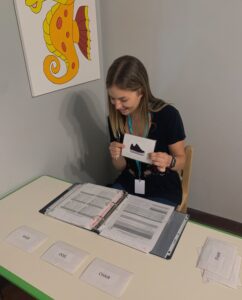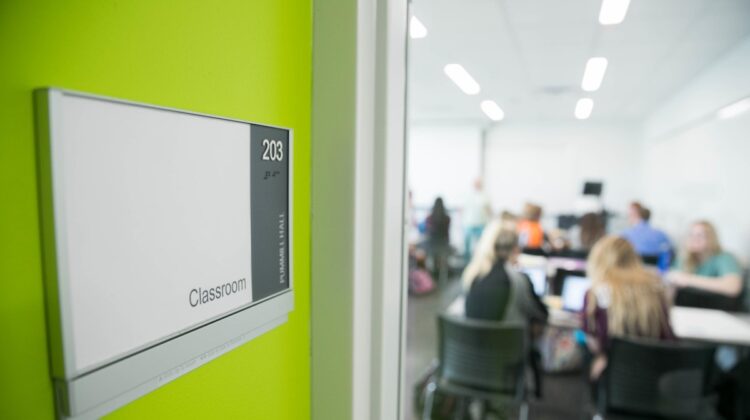Finding your passion within a field can make all the difference in motivating you to pursue your dreams.
As a freshman at Missouri State University, Taylor Janota worked as a nanny for a young boy who had autism. In this role, she observed certified speech language pathologists, physical therapists and behavioral analysts as they worked with their client.

“This little boy didn’t have any way of communicating with others, but we were able to work with him to build that skill set,” Janota, now a board-certified behavior analyst for Emergent Learning Center in St. Louis, Missouri said. “It was cool to see the collaborative process and the critical thinking that had to happen in order to set this child up for success.”
With a passion for autism and language, Janota pursued her bachelor’s in speech language pathology and started in a graduate program.
She soon discovered that she missed the behavioral side of working in therapy, so she refocused her graduate path to a master’s in special education with an autism emphasis.
She also set her sights on applied behavior analyst (ABA) credentials, which she could prepare for with the experiences from her graduate program.
Professional experiences
As a graduate student, Janota worked closely with her professors, collaborated across departments and did practicums in school and clinical settings.
“I was able to conduct research and do a lot of different things within the realm of autism,” Janota said. “I got experience working with kids, practicing intakes and data collection – all the skills that I use now in my career.”
The ABA credentials are acquired after passing a national certification exam, which is taken separately from the typical classwork.
“The exam is known as ‘the beast,’ and it is a little nerve-racking,” Janota laughed. “It definitely took some studying, but I was very surprised with how well prepared I felt for it.”
Celebrating little victories
In her career, Janota has learned to appreciate growing with her clients.
“When you’re going into this field, you are going to learn a lot about these individuals who you’re serving and you’re going to learn a lot about yourself,” Janota said. “I’m someone who likes to see progress quickly, but I’ve realized that’s not life.”
Janota works consistently with the same clients in a clinical setting, so she gets to see her clients in each step of their journey.
“This work has given me a new lens for looking at progress,” Janota said. “Even if it’s just a little bit of progress, that’s progress, and that’s something to be celebrated.”


